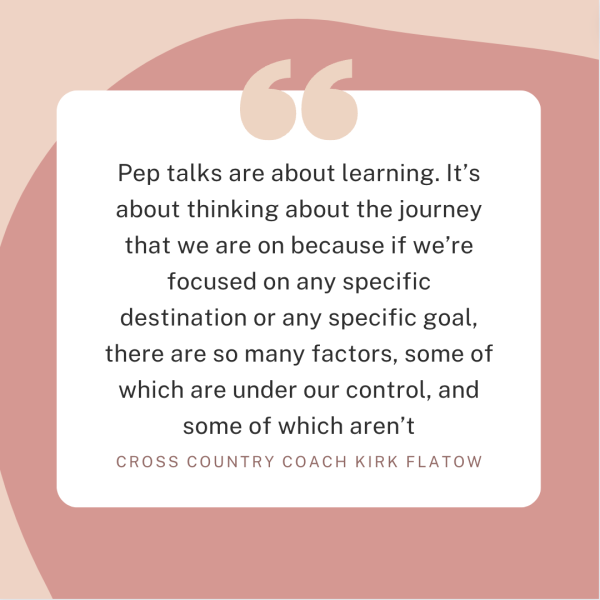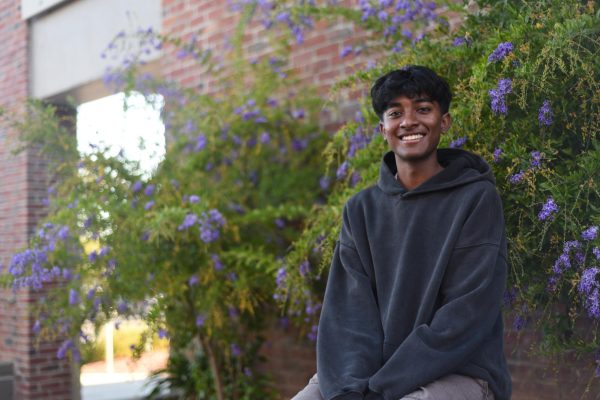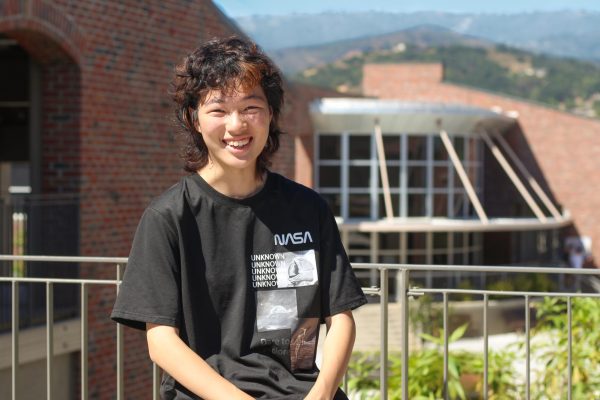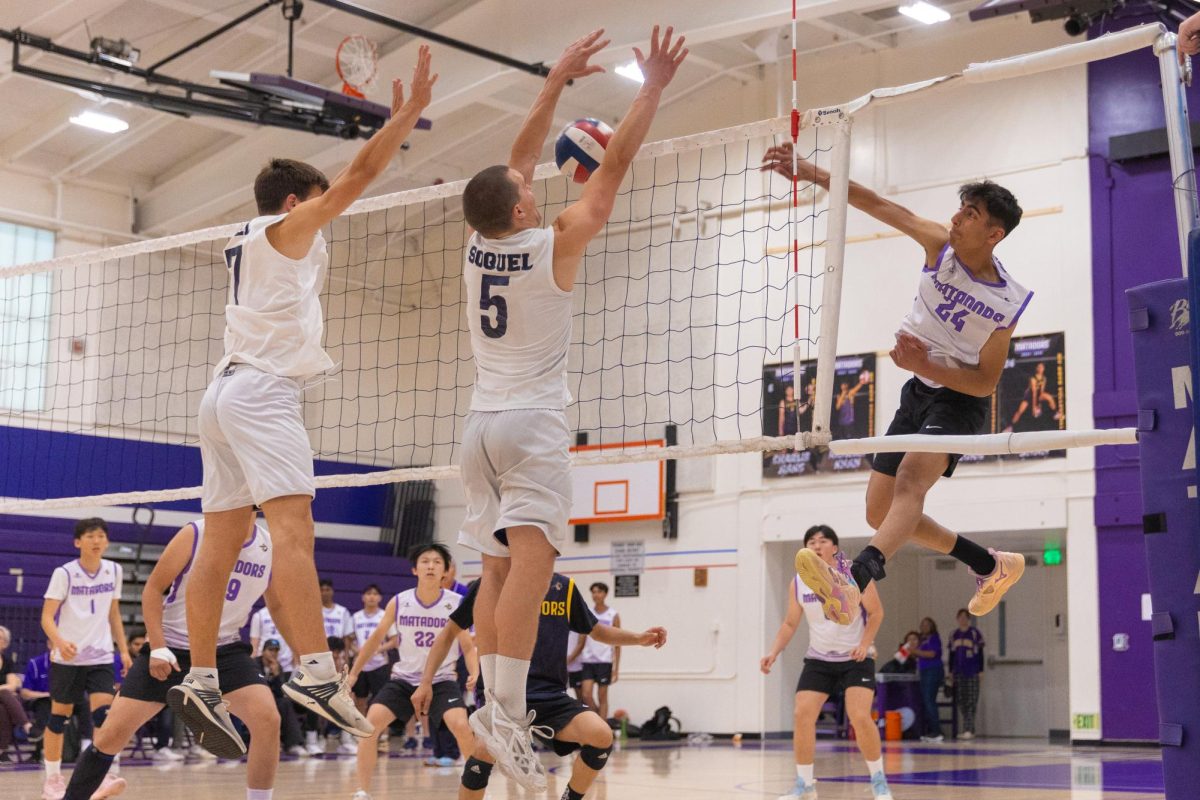In his early days of coaching, Football Head Coach Ceazar Agront recalls his approach to giving pep talks being drastically different from what he does today. Over the years, Agront says his older style of giving pep talks — which involved a lot of cussing, yelling and high energy — has matured alongside his coaching.
“That’s just something that I’ve understood where I need to calm it down,” Agront said. “You have to be the emotional buffer between whatever they’re feeling and what you know the game is going to provide. The game is a very violent sport, a lot of energies are there. So over the years, I’ve definitely tried to be more mellow, but more direct and on point with what the point I need to get across is.”
For Agront, pep talks play an important role in keeping the team on track after a week of practice. Agront typically gives pep talks before the game and during half-time, though he also uses similar avenues of communication during practices if the situation calls for it.
“The pep talks are a time for us to reground or reaffirm what we’ve been focused on, like the things that we’ve stated throughout the week,” Agront said. “It’s, ‘OK, I know the energy is coming high. I know feelings are rising up because you’re about to go on a competition. You don’t want to lose the game. You don’t want to mess up.’ There’s a lot of, ‘I don’t want to.’ And so that focus can get kind of unsettled. I feel like pep talks can just kind of just get everyone all focused on the same thing again. We were just doing this all week long. Now we got our uniforms on, and parents, families, guardians — everyone’s out there. It’s not necessarily a way to hype them up. I know it can come across that way. But it’s just definitely a way to just focus on the job at hand.”
After running cross country and track and field in high school, Cross Country Head Coach Kirk Flatow has been coaching at MVHS for 15 years. Throughout his coaching career, he has valued maintaining a collaborative relationship in which his student-athletes feel open to share their own input and have their opinions valued.
“If you talk to my athletes, they say we have pep talks not so much the beginning of meets, but at the beginning of almost every practice,” Flatow said. “I will go off on some kind of motivational or instructive talk about something that is important. It’s about character development or grit or goal orientation or something and I will do that almost at the start of every practice when I have the chance.”

Badminton Head Coach Russell Okuno finds that his pep talks tend to vary based on his athletes’ experience levels. For Junior Varsity players he aims to address the fundamentals and provide short spurts of motivation, while for his Varsity athletes, he prioritizes providing technical feedback.
“Hopefully they gain insight that they didn’t realize was occurring during the match,” Okuno said. “So I’m trying to provide a fundamental that they had forgotten. So badminton is basically a game like a lot of things, so it is about understanding how your opponent is playing and what they are trying to do.”
For Flatow, the objective of his pep talks are to motivate and inform his athletes so that at the start of the competition or meet, they know what to do and are mentally prepared. He prefers to spend time talking about how much everyone has improved throughout the season rather than specific championships and awards so that his athletes can maintain a level head and focus on their specific goals.
“Pep talks are about learning. It’s about thinking about the journey that we are on because if we’re focused on any specific destination or any specific goal, there are so many factors, some of which are under our control, and some of which aren’t,” Flatow said. “So on a day-to-day basis, it is more of a pep talk on the sense of remembering we are on a journey and each day is a step to a potential opportunity to step forward and to make progress on that journey and we should enjoy that whole piece which means enjoy the work, enjoy the fact that we are on the team, enjoy the fact that we have friends and teammates and that the experiences that are going on are going to be valuable no matter what. And the destination, we will get there, but it might not be exactly what we expect. The more important thing is the journey. On the day of the meet — if we had that focus and if I have done a good job teaching the fact — then on the day of it, we know what to do.”
After each game, Agront brings the team together for a final talk. He highlights the importance of keeping his players grounded during the season, both on the field and in their everyday lives, by focusing on responsibilities like homework as well as football.
“They know straight up, when I’m talking to them it’s nothing but real,” Agront said. “I always tell them, I’m always gonna be real to you guys. Not gonna sugarcoat nothing, and I’m at least going to provide the situation and hopefully give them a path to success or at least to do better than what we’re doing. I mean, I’ll tell them straight up, ‘Man, we suck right now.’ And that’s fine because there’s a winner and there’s a loser in this game. But let’s not finish here. Let’s look at what we can do to change, let’s control what we can control and then now let’s go to work and do that.”
Ultimately, Agront believes the purpose of pep talks is not necessarily to motivate the team to win or lose, but to drive in a lesson that resonates with his players. As a coach, Agront’s goal is not necessarily to develop good football players, but instead “good people that try to play the game.”
“Remember what our program stands for and why you play the game,” Agront said. “That’s typically the ongoing message, and it comes out in different ways. And then at halftime, regardless of what it is, win or lose, there’s always something to continue to strike home, like hey, rather than we’re up or down, we’re having a great game or having a terrible game, remember why we’re here. It’s not necessarily to go out there and win the game or lose the game. It’s about enjoying the moment and taking what you can get from the moment so that one day, 20 years from now, it’ll help you.”
Music Credits: 2am — TheRelaxedMovement












